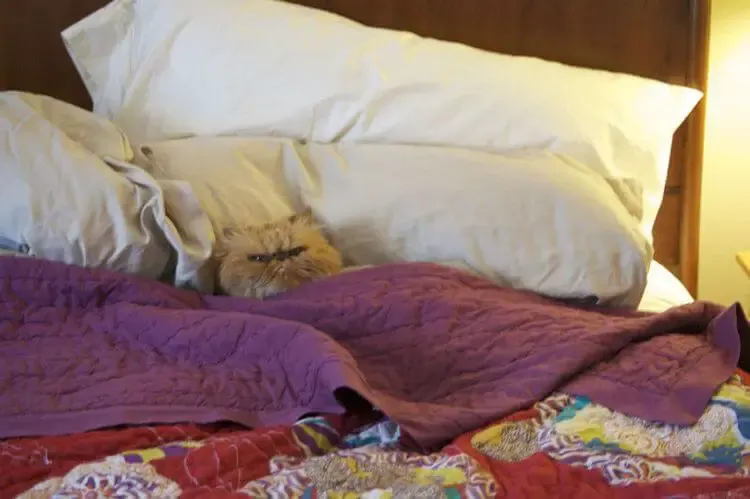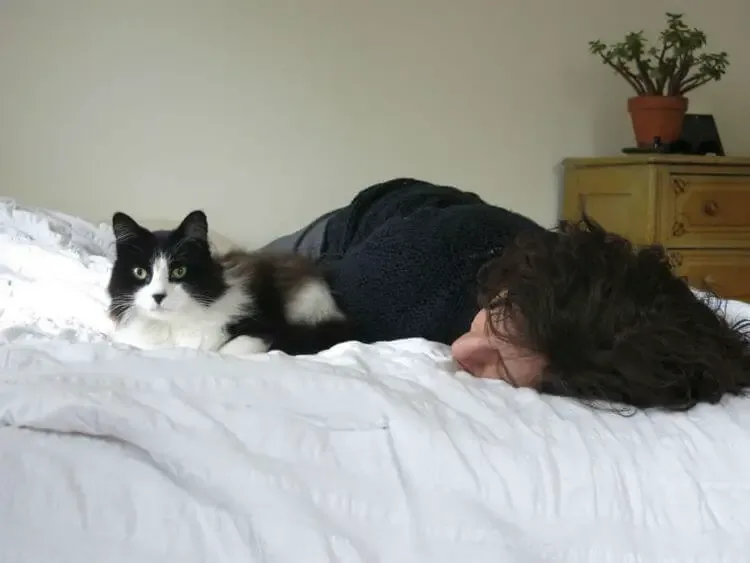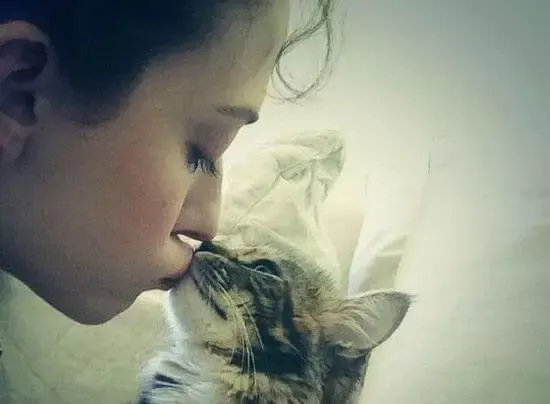When you adopt a furry, four-legged pet, they definitely will take over and change your life from top to bottom.
After all, it is basically like adding a new member into the family.
You have to accommodate their emotional and physical wants, needs, and personalities.
And on top of all this you still have to take into account that they are entirely reliant on you as their owner – with their adoption, you become their entire world.
In turn, they lavish you all the love and attention. Well, hopefully.
After all, if you are the one feeding them, they will love you, right?

Oftentimes, what ends up happening is our pets having a pretty big range of our house.
This is especially true for cats. Sure, you can train them to not jump onto the furniture, but good luck with that unless your cat is a people-pleaser.
And what inevitably happens is them deciding that yes, the human bed is very much comfier than their own, and it is now theirs.
There is no way to circumvent this claim unless you lock the poor cat out, so you now have a permanent bed mate!

The problem is that this may not be safe for your health.
Sharing your bed with your pet is viewed as incredibly common, and it is backed up by stats.
A UK-based pet insurance company surveyed 2,000 people and found half of them share a bed with their pets.
Some folks take it a step further when it comes to this invasion of personal space – a fifth of the participants let their pets eat off their plates!
The aforementioned examples are only the tip of the iceberg when it comes to their pet’s personal hygiene, with other survey questions revealing that owners in general aren’t as strict as they should be.
Ideally, pet owners should wash their pets once a month, their pet’s bed every two weeks, and their food and water bowls every day.
Washing your pet’s bed regularly is incredibly important as well, since it is the easiest way to prevent fleas.
However, only 30% of surveyed participants say they do so.

This has experts worried – behaviour like this can make both pet and owner very sick.
This is especially true when it comes to cats in bed – they can spread bacteria, parasites, fungal infections, and even the bird flu.
Salmonella and Campylobacter in particular are two of the most common bacteria spread by cats that can cause flu-like symptoms and fatal infections in humans.

And that is just the unseen stuff. Cats can also track drool, dirt, and kitty litter all over your bed sheets.
Regular hygiene routines will make all this less of a problem, but it is really much easier and in the best interest of both yourself and your pet to keep them off your bed.
With your health and cleanliness involved, maybe it is time to buy your cat a bed next to yours and train them to sleep there instead!
